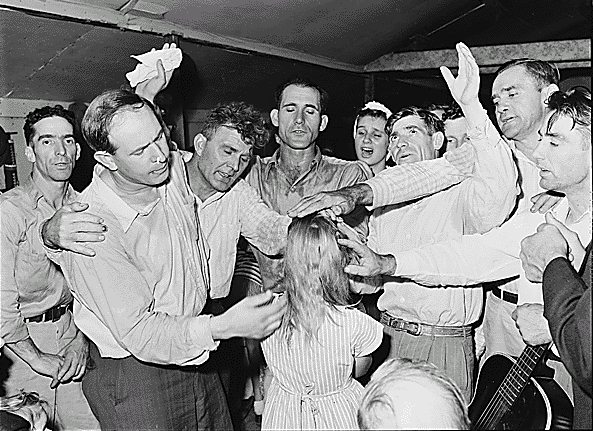Über 90% der Bevölkerung Venezuelas wohnt in einer Stadt. Diese einfache Tatsache führt seltsamerweise zu einer falschen Einschätzung der Lage bei vielen Venezolanern. Viele sind nämlich der Meinung, eine Stadt ist ein Ort mit über 1 Million Einwohner. Alles darunter sei ein Dorf. Natürlich sagen das die Leute in Caracas, Maracaibo und Valencia. Leider sind die meisten Führer aller Parteien aus diesen Regionen.
Findet Ihr das bescheuert? Ich auch, Venezuela ist leider so. Einerseits haben die verschiedenen Regionen ihren eigenen Charakter; anderseits hat der Zentralismus seit dem sechzehten Jahrhundertt eine sehr starke Rolle gespielt und immer wieder aus Angst vor Zersplitterung aber auch wegen absolutistischen Ideen die Entwicklung anderer Regionen verhindert. Darum haben sich diese Regionen sozial und wirtschaftlich kaum entwickelt und darum denken die Leute so.
Wir durften unsere Gouverneure und Bürgermeister erstmals seit 1988 wählen und die Chávez-Regierung, wie früher andere Caudillos, ist seit Jahren dabei, die Selbständigkeit der Regionen wieder zu reduzieren.
Die Parteiführer der neuen Parteien - vorwiegend die Leute von Primero Justicia und UNT - stammen meistens aus Caracas, Maracaibo oder Valencia. Andere kommen aus Barquisimeto oder Maracay. Leider sehen sie ihre Städte immer noch als Mass aller Dinge.
Die durschnittliche Stadt ist eine Stadt wie Guacara oder Guarenas, Calabozo oder selbst Maturín. Die meisten Leute in Caracas denken, das seien Dörfer. Erst wenn der ganze Top von PJ und UNT, von Podemos und Causa R mehr Zeit in Städten wie Guacara und Maturí verbringt und weniger in Caracas oder Maracaibo, werden wir eine Chance haben.
Der durschnittliche Bezirk ist nicht Petare oder Valencia. Der durschnittliche Bezirk ist San Diego, in Carabobo, Libertador in Aragua, Los Salias in Miranda, Baralt in Zulia, Junín in Táchira oder Rosario de Perijá in Zulia.
Und wie sehen diese Bezirke politisch aus?
San Diego, ein Bezirk in der Nähe von Valencia, ist von einem guten Bürgermeister regiert. Die Leute in diesem Bezirk sind nicht reich, sie sind sehr durschnittlich und sehr gegen Chávez. Etwa 78.88% von ihnen haben die alternativen Kräfte bei den Wahlen für die Nationalversammlung von 2010 gewählt. Da müssen wir nicht viel tun.
Libertador in Aragua ist ein Bezirk, der stark pro-Chávez ist. 57,71 % wählten Kandidaten der PSUV. Allerdings war der Anteil der Nichtwähler viel grösser. Da müssen wir viel unternehmen.
Los Salias ist ein Bezirk in Zulia. Wie fast überall in Zulia wählen die Leute eine Partei der Region und die ist die Partei der Sozialdemokraten UNT (wir haben ungefähr 10 Parteien, die sich als Sozialdemokraten bezeichnen). 77,85% der Wähler haben sich in 2010 für die UNT entschieden. Da ist die Arbeit schon getan.
Baralt ein ein anderes Bezirk in Zulia. Da ist die Partei der Militärs aber stärker: 56,49% der Menschen wählten die Liste der PSUV. Rosario de Perija, auch in Zulia, kann auch als ein durschnittlicher Bezirk angesehen werden. Da war UNT wieder stärkere Partei mit 52.8% der Stimmen.
Die alternativen Kräfte müssen nun vor allem zu den wichtigsten sekundären Städten gehen, Städte und dann zu allen Bezirken, die eine durschnittliche oder überdurschnittliche Bevölkerung haben und noch nicht mehrheitlich für demokratische Parteien wählen.
Venezuelas Wahlen sind trotz Carter-Aussagen von 2004 nicht koscher. Das kann man aus
diesem Bericht eines EU-Beobachters von 2006 entnehmen (das war mittlerweile lange her). Die Demokraten müssen eine überwältigende Mehrheit haben, um überhaupt zu einer knappen Mehrheit zu gelangen.
Sie müssen begreifen, wo das Zentrum, aber auch wo der Schwerpunkt der Republik sind. Noch was: der Durschnittsvenezolaner hat keinen Internetzugang, liest keine kritische Zeitungen, hat keinen Kabelfernseher und kann keine regierungskritischen Sender sehen. Das wissen ausländische useful idiots, die in Hotels übernachten, leider nicht. Wir aber schon.
 |
| Maturín wartet auf uns |




















